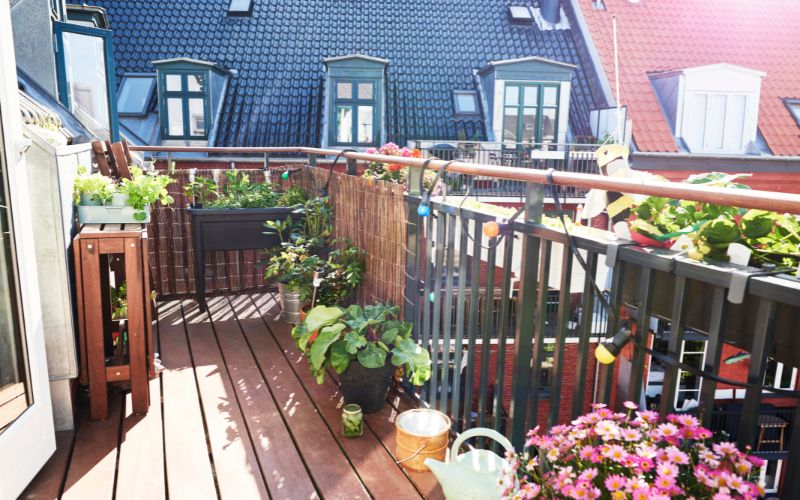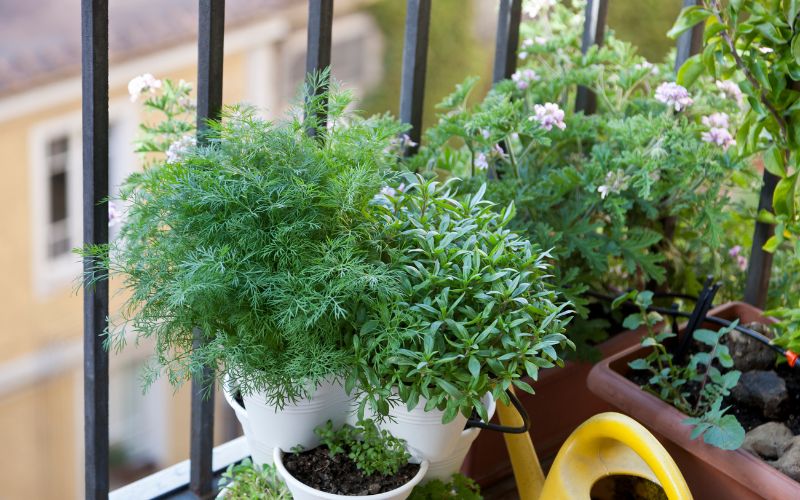Balcony gardening is a great way to enjoy fresh produce and beautiful plants without taking up a lot of space. T
here are a few things you need to know in order to get started, though.
In this article, we will discuss the best plants to grow on a balcony, how to choose the right plants for your balcony, what types of soil and watering are needed for balcony plants, and how to protect your plants from pests and diseases.
What plants are best suited for growing on a balcony?
Some plants are better suited for growing on a balcony than others.
The best plants to grow on a balcony are those that are compact and require little maintenance.
Some good examples of plants that fit this description include herbs, vegetables, and flowers.
The types of plants that you decide on will depend on the amount of room that you can dedicate to them and how much space you have for pots and growing bed as well.
How to choose the right plants for your balcony
When choosing plants for your balcony, it is important to consider the amount of sunlight that the area receives.
If your balcony gets a lot of direct sunlight, then you will want to choose plants that can tolerate that type of environment.
Plants that need partial shade or full shade will do best on balconies that do not get a lot of direct sunlight.
It is also important to consider the amount of space that you have when choosing plants for your balcony.
If you have a small balcony, then you will want to choose compact plants that do not require a lot of room to grow.
If you have a large balcony, then you can choose plants that are more aggressive in their growth.
Plants that grow well on balconies
Some plants that grow well on balconies include:
Herbs. Herbs are brilliant plants for balconies.
Houseplants. If you’re growing houseplants, give them a summer holiday on your balcony.
Bedding plants.
Japanese maple.
Tomatoes.
Jasmine.
Bulbs.
What types of soil and watering are needed for balcony plants?
The type of soil that you will need for your balcony plants will depend on the types of plants that you are growing.
Herbs and vegetables typically do not need as much nutrients as flowers, so a potting mix or light garden soil will suffice.
If you are growing flowers, then you will need to use a potting mix that is richer in nutrients.
When watering your plants, it is important to remember that plants grown in containers will dry out more quickly than those that are grown in the ground.
Balcony plants will need daily inspection to see if they need water.
However you should also be careful not to over-water your plants as this can lead to root rot, so it is important to only water your plants when the soil is dry to the touch.

How to protect your plants from pests and diseases
Pests and diseases can be a problem for any type of plant, but there are some steps that you can take to help protect your plants.
One way to protect your plants is to choose varieties that are resistant to pests and diseases.
Another way to protect your plants is to make sure that they are getting the proper amount of nutrients and water.
If you are using a potting mix, be sure to fertilize your plants according to the package directions.
You can also take steps to prevent pests and diseases from occurring in the first place.
Some of these steps include keeping your balcony clean, removing debris from around your plants, and using traps or barriers to keep pests away.
Final Words
Balcony gardening is a great way to enjoy fresh produce and beautiful plants without taking up a lot of space.
There are a few things you need to know in order to get started, though.
By choosing the right types of plants for your balcony area while taking into account the levels of sunlight, you will be able to create an outdoor oasis that you can enjoy for years to come.






